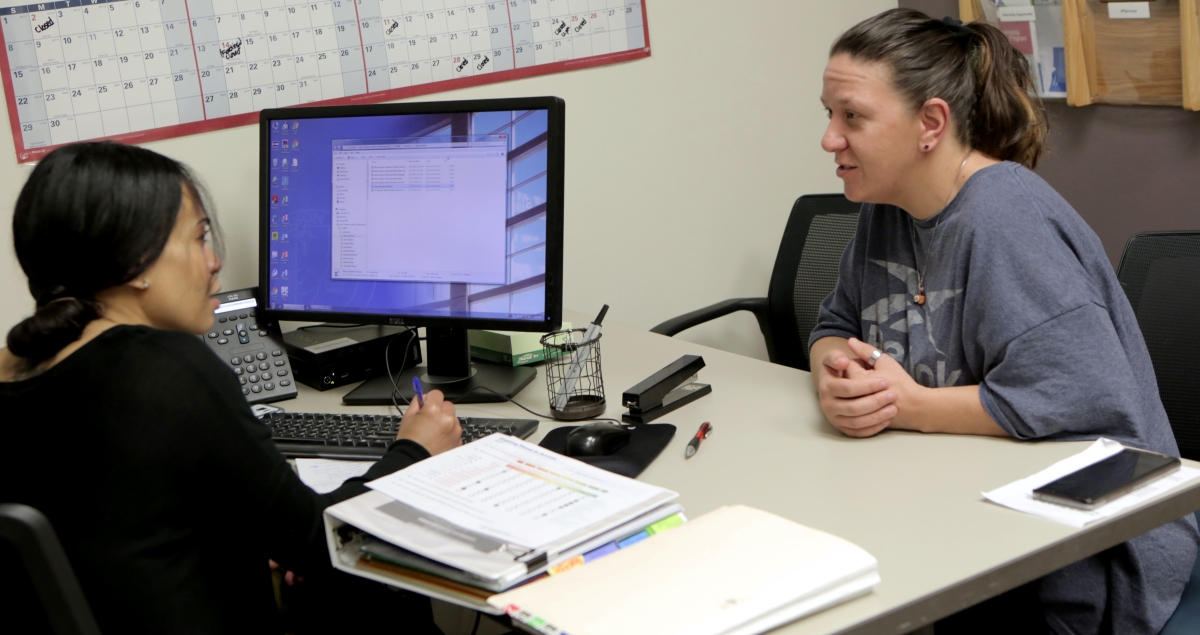People with disabilities and low incomes often have trouble accessing critical government services, because of the administrative burden associated with accessing and maintaining benefits. One way to reduce this burden is case management—a service intended to help participants navigate the complexities of health and human services programs. Yet, despite the prevalence of case managers across different programs and agencies, including Medicaid, the Supplemental Nutrition Assistance Program (SNAP), and Temporary Assistance for Needy Families (TANF), there is no consensus on case managers’ roles and responsibilities, or what quality case management looks like.
As researchers studying case management, we’ve observed a tension between what program participants need to navigate the increasingly complex health and human services system and the central job responsibilities of case managers. At its core, case management is meant to assess needs and help people access complicated public programs. Does case management achieve this end by ensuring compliance with regulations? By requiring case managers to complete and process (lots of) paperwork? Or by requiring case managers to build relationships that center on trust and rapport? How can quality case management ensure compliance while delivering the essential services to program participants in need?
The entities that fund and define case management typically use process measures, such as timely completion of plans or contacts made within a 30-day period, as proxies for quality case management. With this mindset, there is a focus on the importance of case managers’ administrative support functions, which in turn has perpetuated a culture of compliance. Case managers report pressure to focus on following rules and regulations, often at the expense of meaningfully engaging and supporting people who receive their services.
Participants in health and human services programs, however, tell us that the best case managers are those who build consistent, person-centered relationships with them and provide them with emotional and logistical support in times of stress or crisis. They report valuing the role case managers play in coaching them on how to achieve their goals of economic stability and well-being. Program participants often rely on case managers to navigate complex and siloed systems but encounter staff whose job performance is assessed based on their ability to process paperwork rather than their ability to foster human connections.
It’s difficult to move from a compliance to a quality orientation in case management because, in part, there isn’t compelling evidence about how case management improves well-being or cuts costs. Although many case managers today are trained in coaching, motivational interviewing, and trauma-informed care, the current accountability structures for case managers do not emphasize using these skills or techniques. The vast majority of case management training focuses on the technical aspects of the job, reinforcing adherence to state and federal policy, documentation requirements, and consequences for noncompliance or nonparticipation.
We think it’s time for the practice and research communities to come together to develop a set of meaningful and scalable metrics of case management quality that incorporates both compliance and relationships with participants. We can achieve this goal by learning more about the impact of case management on program and individual outcomes, innovating together on evidence-informed strategies, and testing these strategies to see which of them can improve services across the health and human services systems. This approach should lead to better outcomes for those who depend on our public health and human services programs.
Let’s learn more about the role case management plays in implementing successful programs and develop ways to measure case management’s effectiveness.
Federal and state agencies that fund health and human services programs should invest in research that examines the complicated web of program components, further establish expectations for case managers, and document the variation in case management responsibilities. Only with a full understanding of the expectations for case managers can we understand collectively how to move away from a system driven solely by compliance. Mathematica’s partnership with the Iowa Department of Health and Human Services on its Hope and Opportunity in Many Environments project is helping the agency understand the training needs of case managers and informing the design of a statewide case management training program.
Let's develop innovative and evidence-based solutions through meaningful partnerships between practitioners, program participants, and researchers.
Funders, case managers, and people who use case management services should work together to define the skills and behavioral competencies associated with high-quality case management, rooted in practice wisdom and the best available science and evidence. This approach will create clarity about what great case management looks like and help guide skill-building among case managers in a way that aligns with the actual work they perform. Building on a longstanding partnership, Mathematica is helping the Colorado Department of Human Services redesign its case management training for all county TANF, SNAP Employment and Training, ReHire transitional employment, and Home Care Allowance programs. This partnership has involved creating a theory of change that defines core components of the case management model across program areas and developing an implementation support tool that county teams can use to strengthen adoption of the model at the local level.
Let’s improve case management by testing, refining, and implementing innovative solutions that balance the varied needs of people within the social services system.
New case management competency frameworks, robust case management training curricula, and new supervision models for developing skills are just a few of the ideas worth testing. Mathematica is partnering with the Florida Developmental Disabilities Council to establish high-quality delivery of home and community-based services in the state. Together, we developed a set of shared competencies for case management professionals. We are now pilot testing a tool that assesses the competency of these professionals with the goal of increasing the uniformity and quality of services provided to people with intellectual and developmental disabilities and their caregivers. An innovative feature of our approach is drawing on the experiences of people with intellectual and developmental disabilities and their caregivers to help drive change.
Using the Learn, Innovate, and Improve framework, we can help develop a more robust and meaningful case management system that balances the needs of funders, case managers, and program participants. This system will begin to address the misalignment between case management focused on compliance and the experience of people who need case management services. Updating case management quality metrics can lead to better outcomes for the millions of Americans our public health and human services systems serve.




